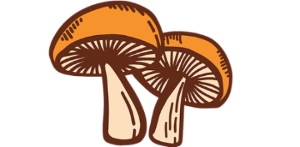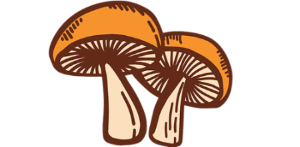Mushrooms are turning up in coffee, chocolate, even beauty 'dusts.' Why?
We all want to sleep better and feel less stressed out, to have more energy and fewer illnesses, and we'd like to be able to think more clearly, too. If only there were a magical potion we could drink to obtain all of these qualities.
Makers of what have been deemed "functional mushrooms" think they have that elixir. The ancient practice of consuming mushrooms for their medicinal properties - a part of holistic medicine - has been popping up in more and more health cafes and packaged goods. They fit into the emerging category of "adaptogenic foods" - foods with natural compounds that promote or restore normal physiological functioning - and trend watchers predict that 2018 is the year they'll go mainstream.
» RELATED: Mushrooms: The joy of fungus in cooking
Four Sigmatic is another one of the brands leading the charge. The company's founder, Tero Isokauppila - a 13th-generation mushroom forager - wrote a book called "Healing Mushrooms," and outlines the properties behind each. These mushrooms go beyond your basic button and portobello. There's reishi, a mushroom he says will keep your skin healthy, give you a better night's rest, reduce stress and cure seasonal allergies. There's chaga, which he says is rich in antioxidants, can fight off the common cold, lower your inflammation and make your hair shiny. There's cordyceps, which he says increases your energy and enhances performance "both athletically and in the bedroom." And there's lion's mane, which he claims can reverse dementia and boosts concentration and memory. Too bad none of them claim to make you a more fun guy. (Fungi! A little mushroom humor for you.)
If it all sounds too good to be true, well, there are some doctors and nutritionists who agree.
"Like most trends, there's a lot of big claims being made," said Mascha Davis, a registered dietitian nutritionist and spokeswoman for the Academy of Nutrition and Dietetics. "There is some research showing some beneficial utilities in some mushrooms, but I think some of these companies that want to sell them overstate the benefits."
For example: Reishi mushrooms have been found to have "antioxidant, antitumor, immune-modulating, cardiovascular, antiviral, and antibacterial effects," according to studies cited in Today's Dietitian. But Davis cautions that there has not been enough research yet, and that some of the studies people use to back up mushroom-related claims were performed only with rodents, not people. Some of the other positive attributes cited in some studies - such as certain mushrooms' ability to thin blood - can be harmful if the mushroom is combined with certain medications, she said.
Some mushroom products aren't making any health claims but are aiming the funghi squarely at customers who want a meat substitute. Panco Foods' Pan's Mushroom Jerky, for instance, is nicely chewy, dry (in a good way) and slightly sweet, but perhaps not salty enough. The mushroom flavor is prominent, and it works.
If you want to get really serious about medicinal mushrooms, though, Davis recommends consulting a doctor - not Goop.
"The first thing I would tell people, if they're really curious about mushrooms, is that they should try culinary mushrooms, like portobellos and shiitake" - good sources of antioxidants - "which you can incorporate into your diet without having to get these really expensive powders," Davis said. And also, if they want to try mushroom powder, "I think it would be prudent to be cautious," she said. But at the same time, "I think it's a really exciting area. There are signs that point to some really interesting benefits."
Read article here.





